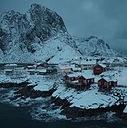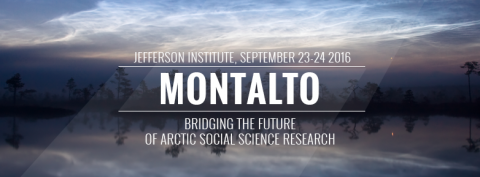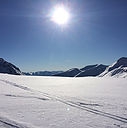The conference will discuss the role played by non- Arctic European Member States in designing a regional Arctic policy. It will be developed on the basis of selected papers focused on five key issues and a set of round table discussions will be coordinated, on the basis of the call for papers. The call is open to all early careers, researchers and senior scientists whose contributions can enrich the reflection on the topic.
We invite proposals related to the following areas:
The European Union in the Arctic Council
Several European non- Arctic Member States are Permanent Observers to the Arctic Council, while the European Union as a regional orgsnization has remained excluded from acquiring this status. Considering that all its Member States are required to accomplish with the European directives and regulations under European Law, and that the geographical boundaries of the organization overlap with the polar ones; the role of the European Union should be reconsidered in order to avoid conflicting or impasse situations. The call would ask for proposals of practical solution to reconcile the International role played by the European Union as a regional actor, maintaining both strategic interests in the North Pole and a commitment to the sustainable management of its environment and populations.
European decision- making power and influence in a changing Arctic
In 2011 and 2014 the Arctic States have exclusively adopted under the auspices of the Arctic Council two relevant agreements related with search and resque activities and with marine oil pollution response in the Arctic, envisaging the possible evolution of the same ino a proper International Organization. Considering this possibility, the exclusion of all European non- Arctic Countries from the bargaining processes and the fact that the Arctic Council may encompass security and defence issues; the call would ask for the definition of future possible scenarios with regard to global security subjects such as navigation, piracy, terrorism, smuggling etc. directly affecting the European territory.
A sustainable development of the Arctic: the European commitment
The European Union has compromised internationally in the fight to climate change, and is currently widely investing in Arctic scientific research. Moreover, all European States have traditionally been funders of scientific programmes and promoters of the rights of Indigenous Peoples. Taking all this in mind, the call would ask how this European commitment can be balanced with Arctic States sovereign rights and aspirations, considering for example the existing International Law framework and the lack of enforcement of several international agreements for some relevant Arctic States (UNFCCC, Paris Agreement, UNCLOS).
The European economic situation: is there an Arctic solution?
In the light of the present energy scarsity and increasing International interests for Arctic resources use and extraction, it is doubtful whether International stakeholders - beyond Arctic States and within the limits of the Law of the Sea- are claiming valid rights of use of the Arctic territory and natural environment. The call ask for proposals on the development, renew of concrete implementation of a European policy for the Arctic, that takes in due account the needs of European non- Arctic States (e.g. access to new sea routes, fishing quotas, access to recources and hydrocarbons) as a possible factor of mitigation of the present economic crisis, considering particularly the relation with some Arctic economic giants, for example Russia.
The European Union and the protection of Arctic Indigenous Peoples
Although not derived from the treaties, the evolving case law of the European Court of Justice has integrated some human rights into the acquis of the European Union. One of the goals of the EU in its Startegy towards the Arctic region is to provide for high standards of protection for Indigenous Peoples, support their sustainable development, resilience and adaptation to climate ghange.The Arctic Member States of the EU are the natural territory of some Arctic Indigenous Peoples whose rights as citizens might be considered by the European Court of Justice. What is more, besides the fact of being a member of the Council of Europe, the EU itself committed to implement the human rights' protection of Arctic Indigenous Peoples within European borders, being this domestic or implemented through regional organizations. In addition to this, one of the most indigenous populated Arctic islands- Greenlad- mantains a relation of Oversea Territory with the European Union and is still dependant on Denmark in the International representation, defence and foreign policy. Considering the possibility for Greenland to become the first Indigenous self-governed country, the call would ask for outlining which could be the consequences of such a a self- government arrangement within the European boundaries and strategic considerations.
Deadline for submission of abstracts: 22 April, 2016.
Acceptance of abstracts: 16 May, 2016.
Please submitt the abstracts (250-350 words) to:
Ms. Elena Conde Pérez, Universidad Complutense de Madrid: conde [at] der.ucm.es
Ms. Marzia Scopelliti, Universidad Complutense de Madrid: marziasc [at] ucm.es or marzia.scopelliti [at] gmail.com
The best paper will be selected for the publication into the Spanish Yearbook of International Law.



